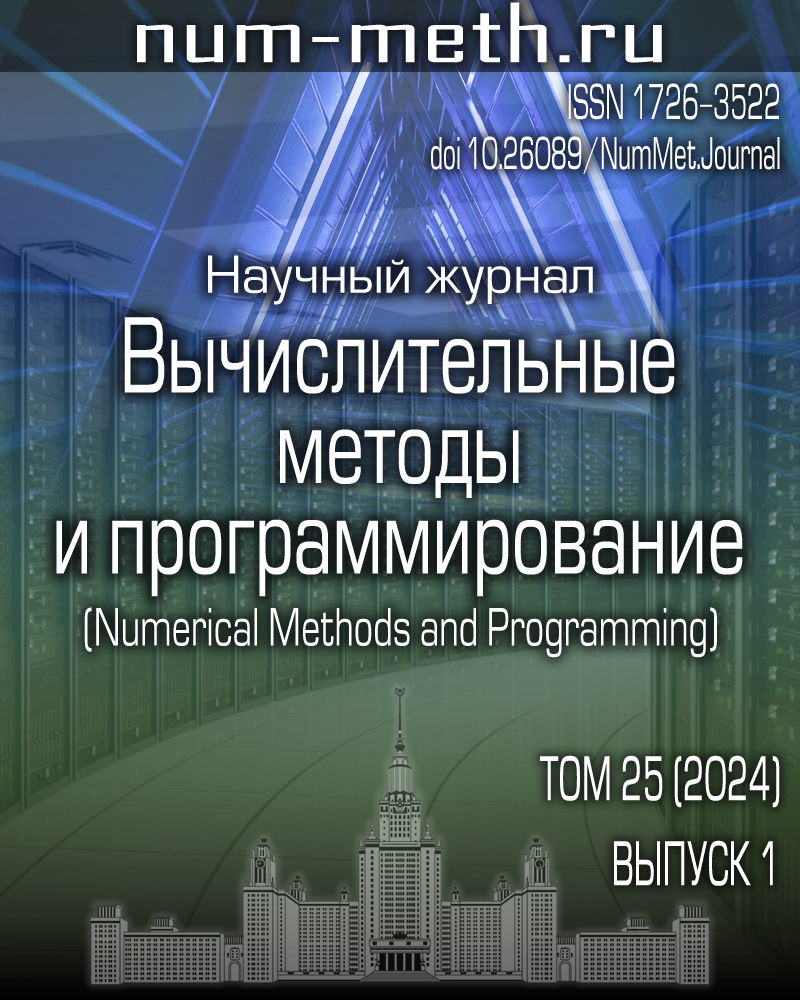|
|
Numerical methods and programming, 2014, Volume 15, Issue 1, Pages 130–142
(Mi vmp237)
|
 |
|
 |
Application of the duality principle in inverse problems for parabolic equations with unknown right-hand sides
N. L. Gol'dman
M.V. Lomonosov Moscow State University, Research Computing Center
Abstract:
The duality principle is considered to prove uniqueness theorems for inverse parabolic problems with final overdetermination. The solutions of such ill-posed problems may fail to exist or be unstable with respect to errors in the input data (the corresponding example is constructed). However, we show that, if a solution exists, it can be unique. The proposed approach allows one to clarify a relationship between the uniqueness property and the density properties of solutions of the corresponding adjoint problems. It is shown that these adjoint problems can be considered as control problems with a control function given in the initial conditions. It is also shown that such density properties follow, in their turn, from the known inverse uniqueness for linear parabolic operators. A number of examples are discussed to illustrate the sufficiency of the uniqueness conditions proved on the basis of the duality principle. Application of this principle makes it possible to study the uniqueness problem for ill-posed inverse problems in their original formulations in the context of the theory of parabolic equations.
Keywords:
parabolic equations, inverse problems, adjoint problems, control problems, duality principle, uniqueness theorems, Hölder spaces.
Citation:
N. L. Gol'dman, “Application of the duality principle in inverse problems for parabolic equations with unknown right-hand sides”, Num. Meth. Prog., 15:1 (2014), 130–142
Linking options:
https://www.mathnet.ru/eng/vmp237 https://www.mathnet.ru/eng/vmp/v15/i1/p130
|

|




 Contact us:
Contact us: Terms of Use
Terms of Use
 Registration to the website
Registration to the website Logotypes
Logotypes








 Citation in format
Citation in format 